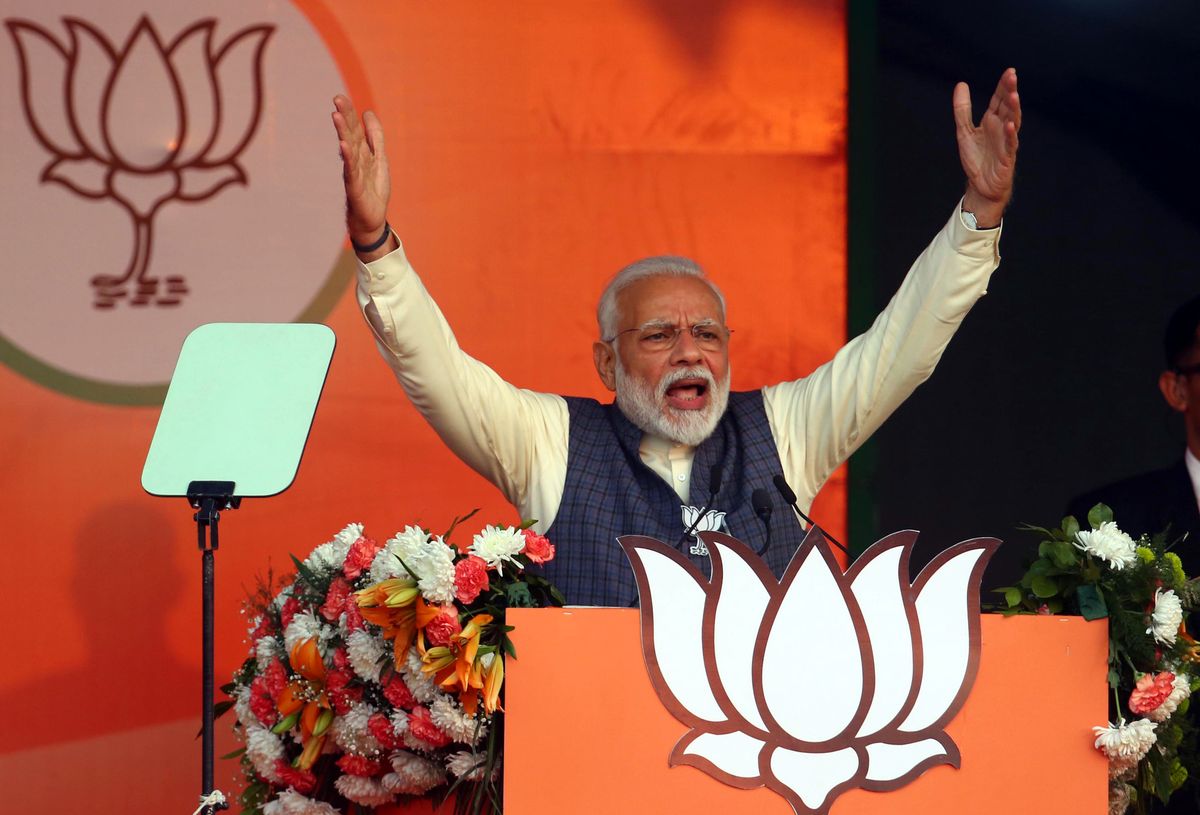It's been a rough few months for India, even by the standards of 2020. Its economy was slowing even before COVID became a household word. A controversial citizenship law provoked deadly unrest in India's largest cities.
Then, when coronavirus infections began to spike in early spring, Prime Minister Narendra Modi ordered a lockdown that gave 1.3 billion Indians just four hours to find a place to shelter in place for 21 days. The resulting chaos inflicted even more damage on India's economy. Amid the chaos, massive crowds of people on the move across the country probably accelerated the spread of infection.
Unemployment has hit record highs, and Modi has begun the gradual process of ending the lockdown, despite evidence that COVID infections and deaths continue to rise.
And Modi, now serving his second term, has an approval rating in the high 70s, and more than 90% of people reportedly support his handling of the coronavirus crisis.
How is that possible? We asked Akhil Bery, an analyst who covers India at Eurasia Group, GZERO Media's parent company. We know Modi is an exceptionally gifted politician, but how is he defying political gravity in this remarkable way?
Akhil offers a few theories…
Modi is decisive. In a diverse country where decisive political action is prized, Modi was able to "re-establish his position as a decisive leader who is doing what it takes to keep the nation healthy and safe," said Bery, by persuading voters that, however hasty, his bold actions saved millions of lives. His controversial policies, particularly on questions of religion and citizenship, are highly popular with large majorities in India, even if critics inside and outside the country say he has deliberately targeted Muslims for discrimination to play to a Hindu nationalist voting base.
He has also stoked national pride by talking very tough on Pakistan, India's rival, and by cutting a formidable figure alongside other world leaders. When he addresses major international gatherings like the UN General Assembly and the World Economic Forum in Hindi rather than in English, Indians see a leader who is advancing India's independence and culture on the world stage.
The opposition is barely visible. The Congress Party, now India's main opposition party at the national level, lacks strong leadership. Party leader Rahul Gandhi is still widely considered "an unserious politician who comes from an elite ruling family," Bery told us. "In my opinion, until Congress changes its leadership, it will always play second fiddle to Modi on a national level. Even if there is anger [at Modi] – there is no leader to tap into that anger and hold Modi accountable."
Modi's party has mastered new media. His Bharatiya Janata Party (BJP) has, according to Bery, developed a social media game and grassroots level organization with highly disciplined messaging. "No other party has been able to organize at the level or use the image of their leaders as effectively." That helps the prime minister sell his version of events efficiently to hundreds of millions of people.
Storm clouds. All that said, over the next two years, India will hold elections in 11 of its 28 states. Modi may calculate that his current popularity owes much more to policies that favor his Hindu nationalist voter base than to the economic reforms of his first term or any potential plans that promote national unity.
Some of the states holding elections have a history of communal violence between Hindus and Muslims. Add the risk of lingering post-COVID unemployment to Modi's history of pitting Hindus against Muslims, and India may be headed for even more turmoil.






